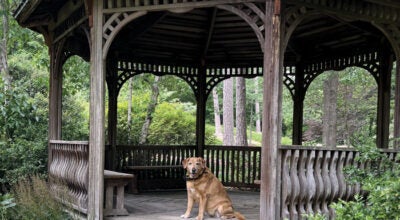Learn how to propagate plants
Published 12:00 am Friday, June 17, 2011
By Carole Massey
Master Gardener Volunteer
SALISBURY — On Wednesday, June 29, Rowan County Extension Master Gardeners will conduct a Plant Propagation Workshop, 9 a.m. until noon at the Agricultural Center on Old Concord Road.
The class will be held under the Outdoor Learning Center next to the greenhouse. Space will be limited to the first 20 to call and register. Phone the Cooperative Extension office at 704-216-8970. There is a fee of $15 for materials and supplies.
A second workshop will be held on Wednesday, July 13. Register for this class also, same time, same place, same $15 fee applies.
This is the 11th year for this popular workshop. Many participants repeat the class to duplicate their favorite garden plants or to learn and improve techniques. Some like to propagate a quantity of the same variety, to plant a border or grove. No matter what the reason, the classes always prove to be entertaining as well as educational.
Master Gardener Jean Lamb and other Extension Master Gardener Volunteers will provide instruction and information on basic propagation techniques. Propagation of popular shrubs such as hydrangea, deutzia, daphne odora, azalea, buddleia, spirea and camellia is best achieved during late June to mid-July when cuttings from new tip growth is green and vigorous and snaps when bent. If the tip bends and does not snap, the growth is too juvenile. Also, cuttings from old wood or aged or declining shrubs will be difficult to propagate.
Cuttings should be taken the morning of the workshop if at all possible. Transport soft-stem cuttings in a cooler with ice or in a container of water. Cuttings need not be excessively long. Participants are encouraged to bring enough plant material to share with others. Volunteers will also have cuttings from their collections.
Other recommended plants for propagation include Weigela, gardenia (upright and trailing varieties), laurel, holly, Carolina Jessamine, crape myrtle, roses, chase tree, Kerria, clematis, beauty berry and coral honeysuckle.
In addition to the cuttings, participants need to bring a pair of pruners, or clippers, and/or a sharp knife. They should be clean and sanitized to prevent the spread of undesirable disease or fungus. A handout will be provided with additional information.
The propagation trays, once filled, will be cared for in the Master Gardener greenhouse until fall. At that time, the cuttings will be ready to be potted up and taken home. Participants are encouraged to come by and check on their cuttings during the summer to see their growth and development. Further instruction will be given when the trays are ready to go home.
For questions or additional information, contact the Cooperative Extension office, 704-216-8981 or 216-8990 or E-mail darrell_ blackwelder@ncus.edu.



